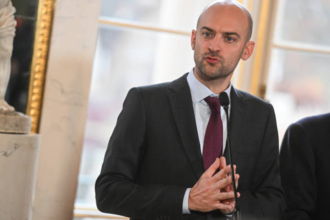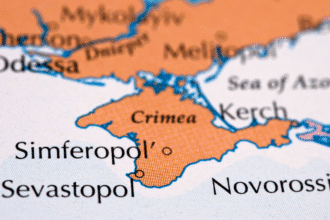Citing growing worries about the dangers of TikTok, a recent French legislative study suggested prohibiting minors under the age of 15 from using social media. Platforms such as TikTok expose children to risky, addictive, and destructive information, according to the six-month investigation. To limit screen time and shield teenagers between the ages of 15 and 18 from risks related to their mental health, it also suggested a nightly digital curfew.
In order to safeguard young users, French politicians are now demanding swift action and stricter control of the entire internet sector. The investigation comes as TikTok’s algorithm and its effects on mental health, particularly among young people who are at risk, are coming under more international scrutiny.
Why is TikTok being targeted by France?
TikTok was deemed by the commission to be one of the most harmful platforms for teenagers, calling it a “production line of distress.” Grieving parents’ testimonies detailed how their kids were inundated with material that encouraged self-harm, sadness, and suicide. One mother talked about songs that celebrate suicide, while another described how her daughter was “deluged with videos” that suggested death as an option.
Lawmakers counter that TikTok hasn’t gone far enough in safeguarding its younger users. The investigation found that despite the platform’s precautions, like screen time limitations and parental controls, these measures are insufficient considering the severity of the problem. Here is the link to our article on the TikTok Ban.
Which regulations are being proposed?
The French research suggests an obligatory digital blackout for users between the ages of 15 and 18 starting at 10 p.m. and a complete ban on social media for those under the age of 15. In order to hold parents responsible when their kids are exposed to hazardous online content in excess, the investigation also proposes the creation of a new crime known as “digital negligence.”
Lawmakers contend that authorities ought to consider whether a child under the age of six is actually being protected in terms of safety and wellness if they spend hours on social media without supervision.
What is the response from TikTok?
TikTok vehemently disagreed with the report’s assertions, describing them as unfair and deceptive. Over 70 features are included in the software to encourage wellbeing, according to a corporate spokeswoman who justified the teen safety safeguards. These include content filtering features and the default screen time settings for children.
The investigation, however, was unconvinced and maintained that TikTok’s algorithm still favors dangerous content for more susceptible people. Arthur Delaporte, the inquiry’s chairman, has accused TikTok of putting lives in danger and forwarded the company’s claims to the public prosecutor in Paris. Here is the link to our article on TikTok Deal Advances.
Are other nations thinking about taking comparable measures?
Indeed. The French plan is similar to recent actions taken in Australia, where a social media ban for minors under the age of sixteen was implemented on December 10. If social media sites like Facebook, Snapchat, and YouTube don’t limit access for younger users, they will be penalized.
While Spain is considering legislation requiring parental approval for children under 16, Denmark is also considering banning children under 15. Ursula von der Leyen, the president of the European Commission, has appointed an expert team to determine the most effective strategy for controlling TikTok dangers and protecting children on the continent.
What are France’s next moves?
Other ideas for digital regulations, such as those pertaining to the monetization of online material, are presently being examined by the National Assembly. Tragedies that are live-streamed, like the tragic death of a French influencer that was aired online, are of special concern to lawmakers.
In France and around Europe, authorities believe that this wider digital crackdown will change the way computer platforms function.
Final Thoughts
The French government’s reaction to the increasing dangers posed by TikTok demonstrates the growing call for accountability in the digital sphere. Platforms may be compelled to update their algorithms and security procedures as more nations take stringent age-based limitations and content rules into consideration. In the ever-changing social media ecosystem, safeguarding young users must continue to be a top focus.








